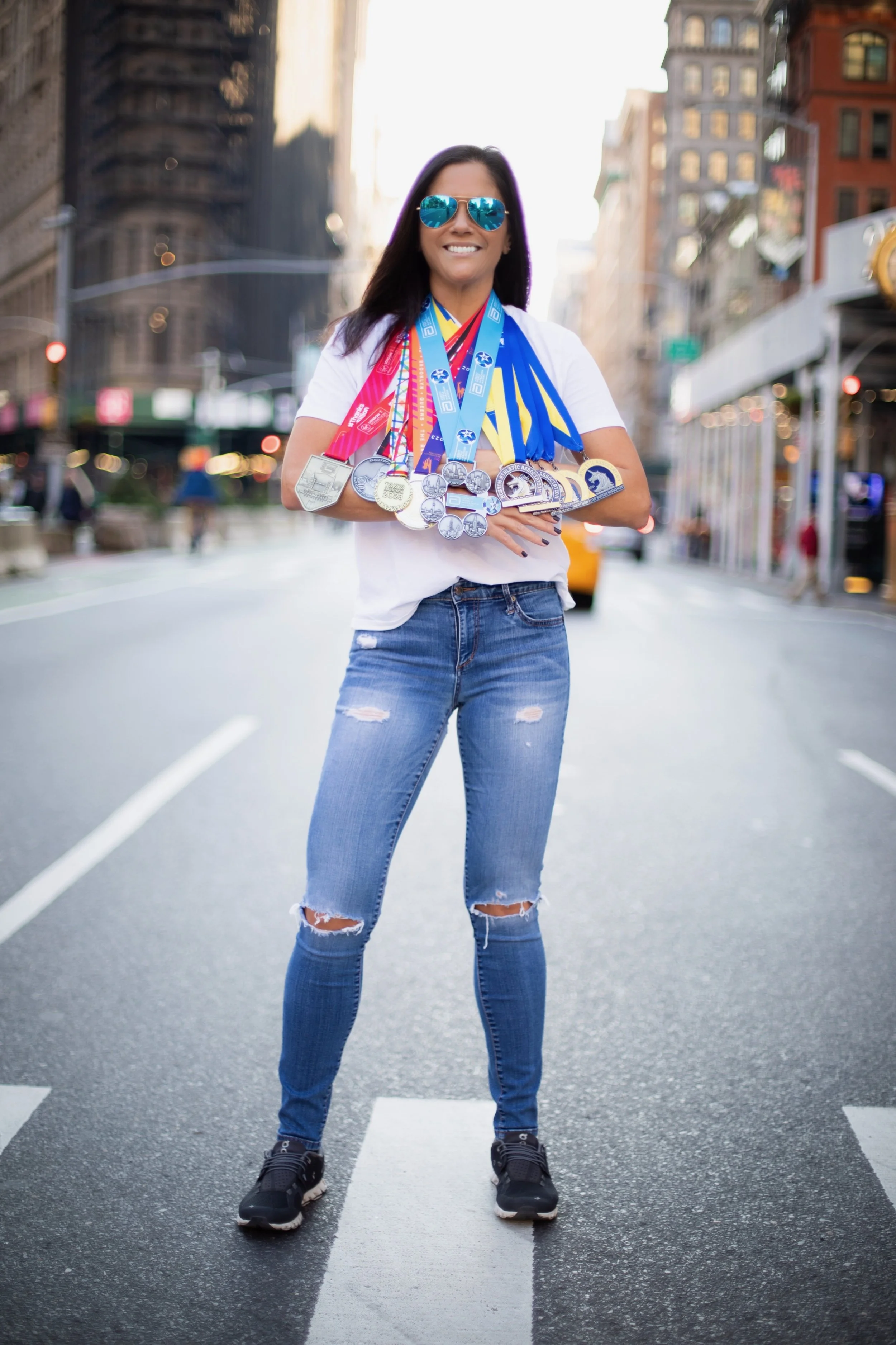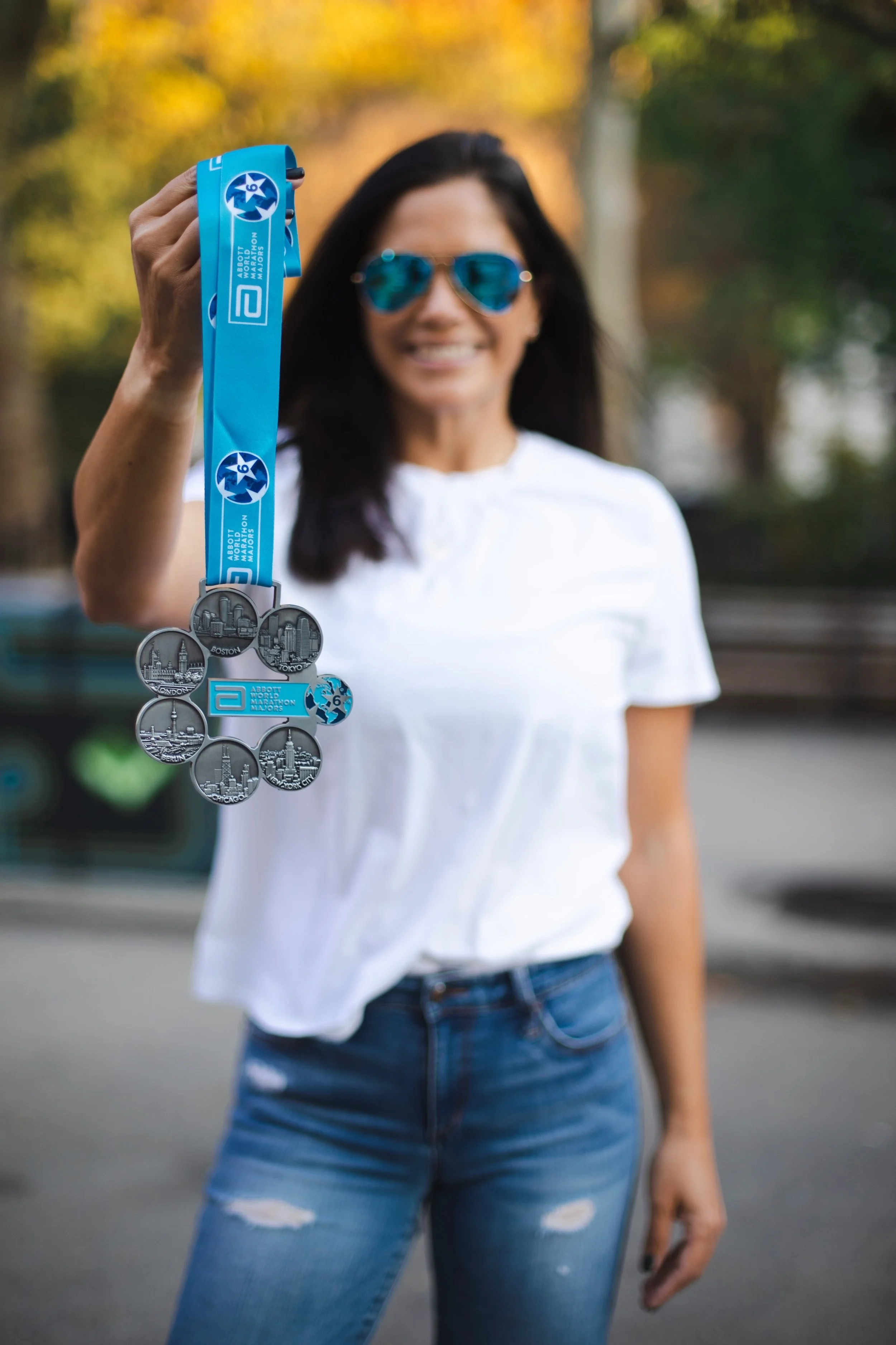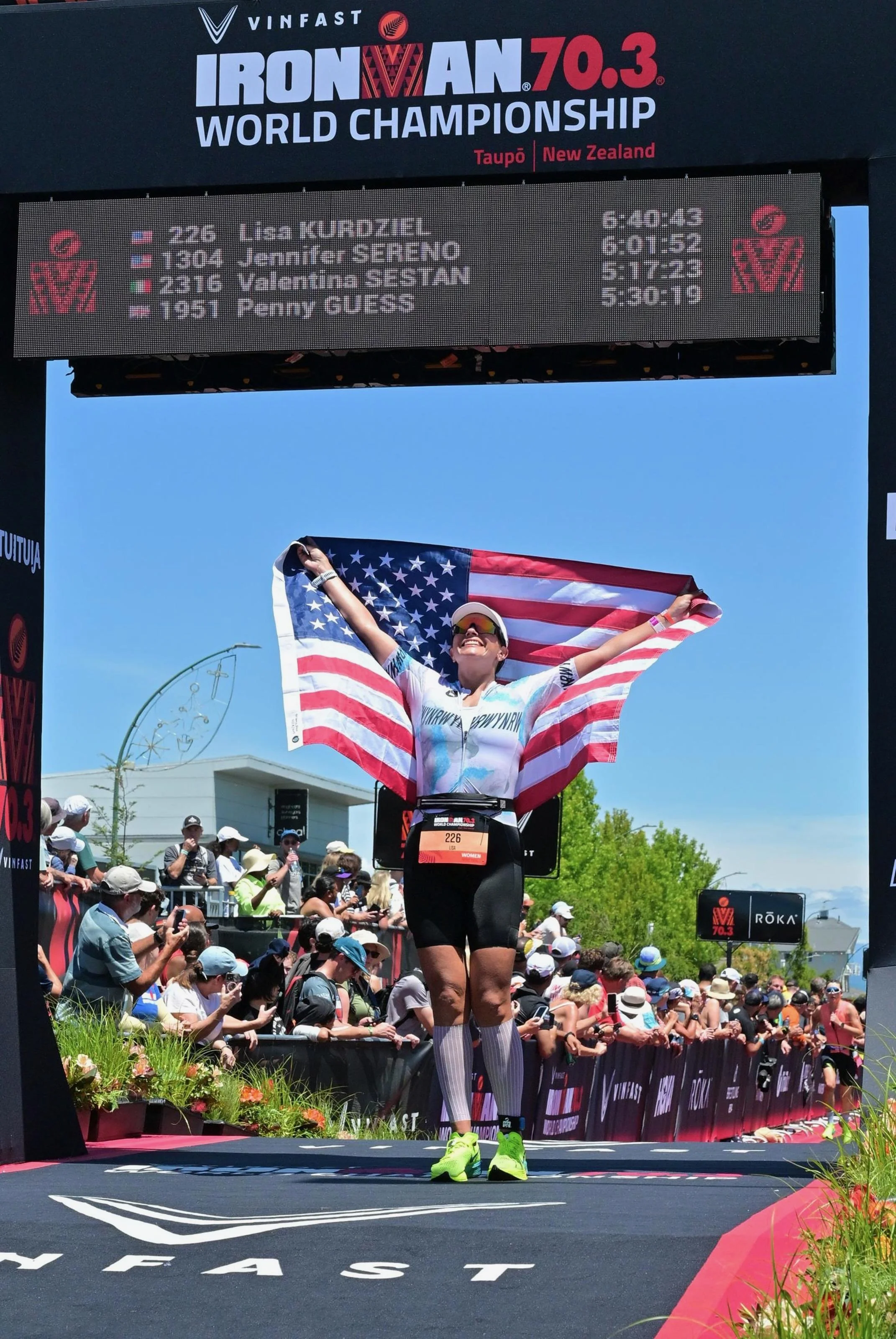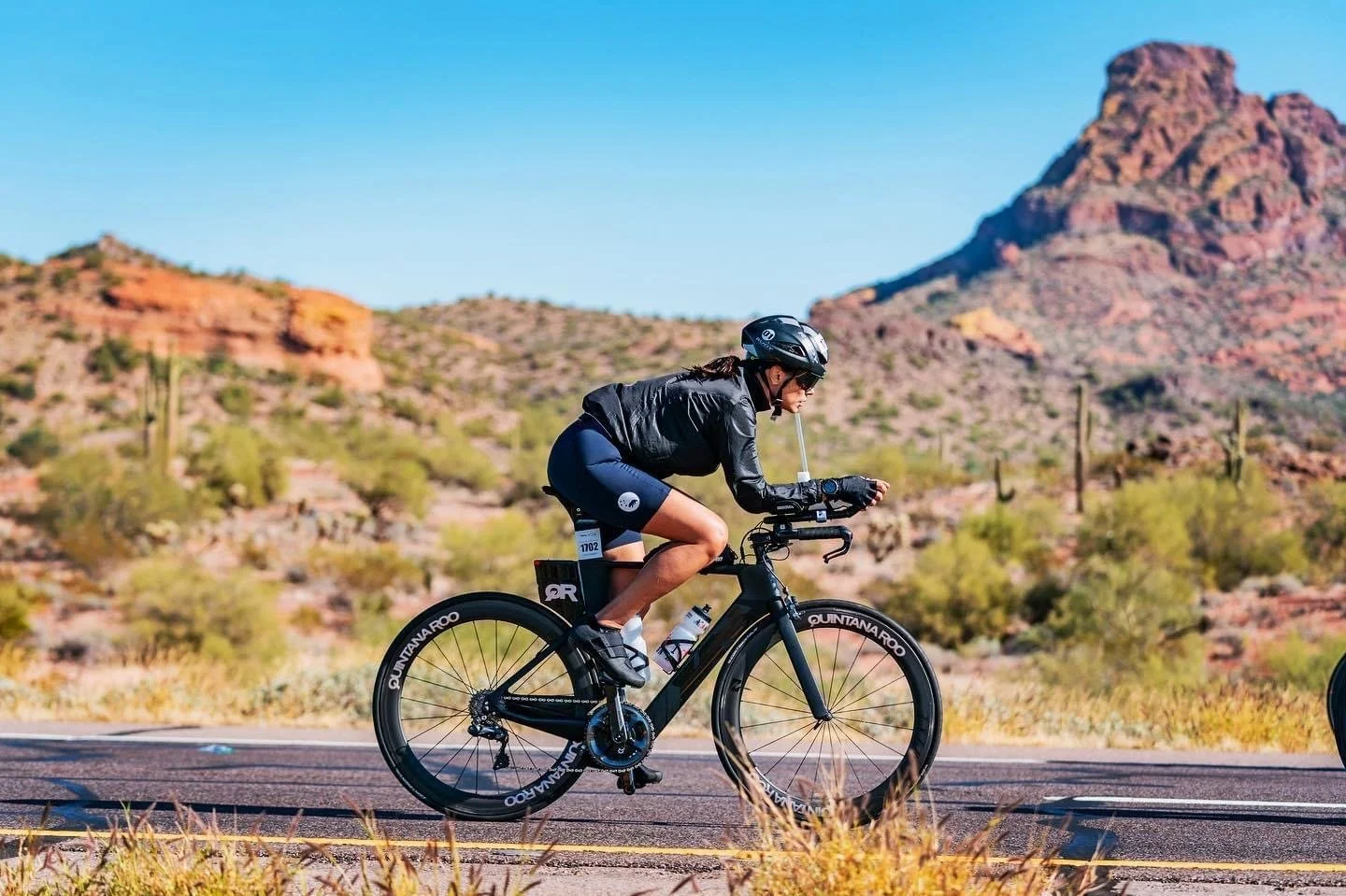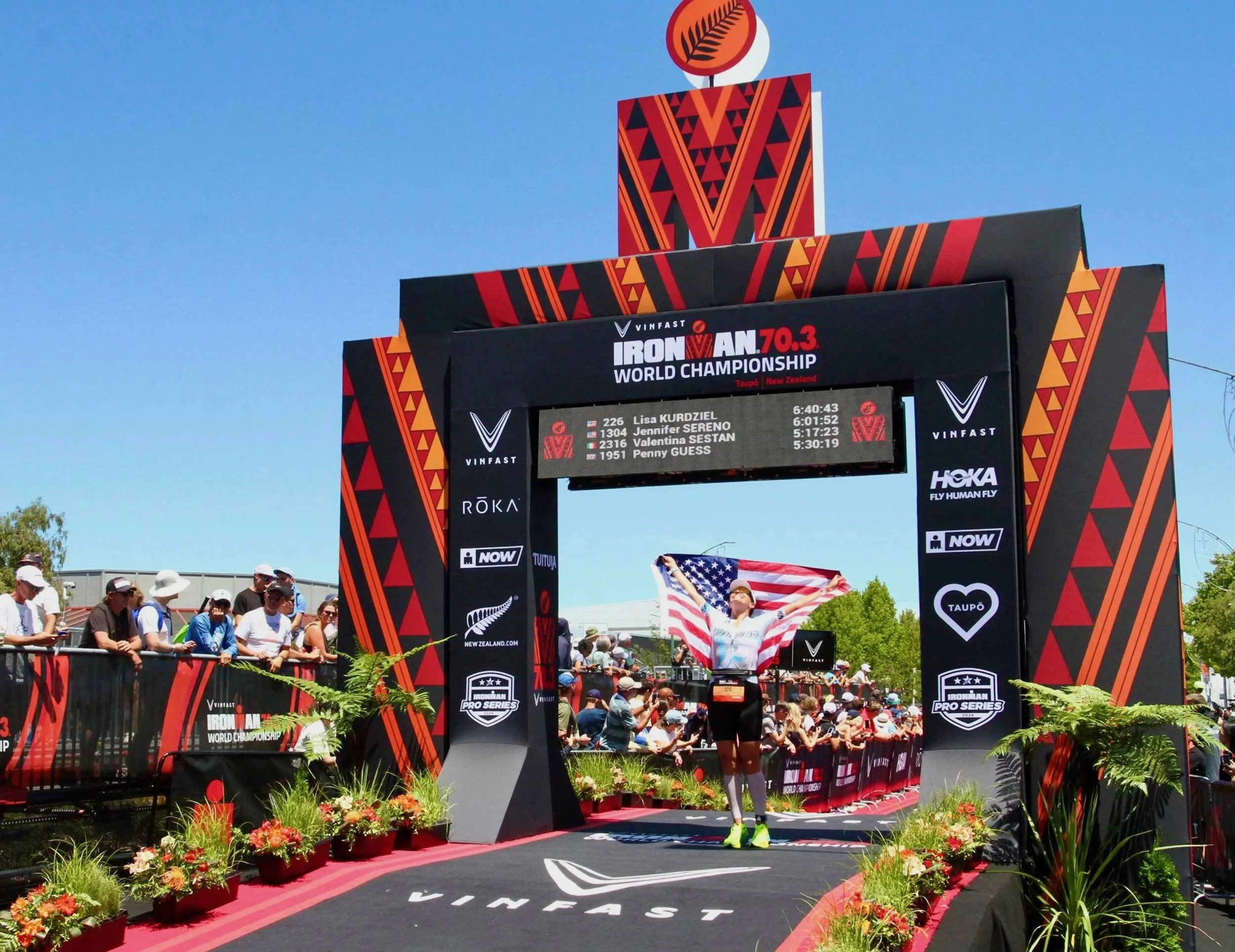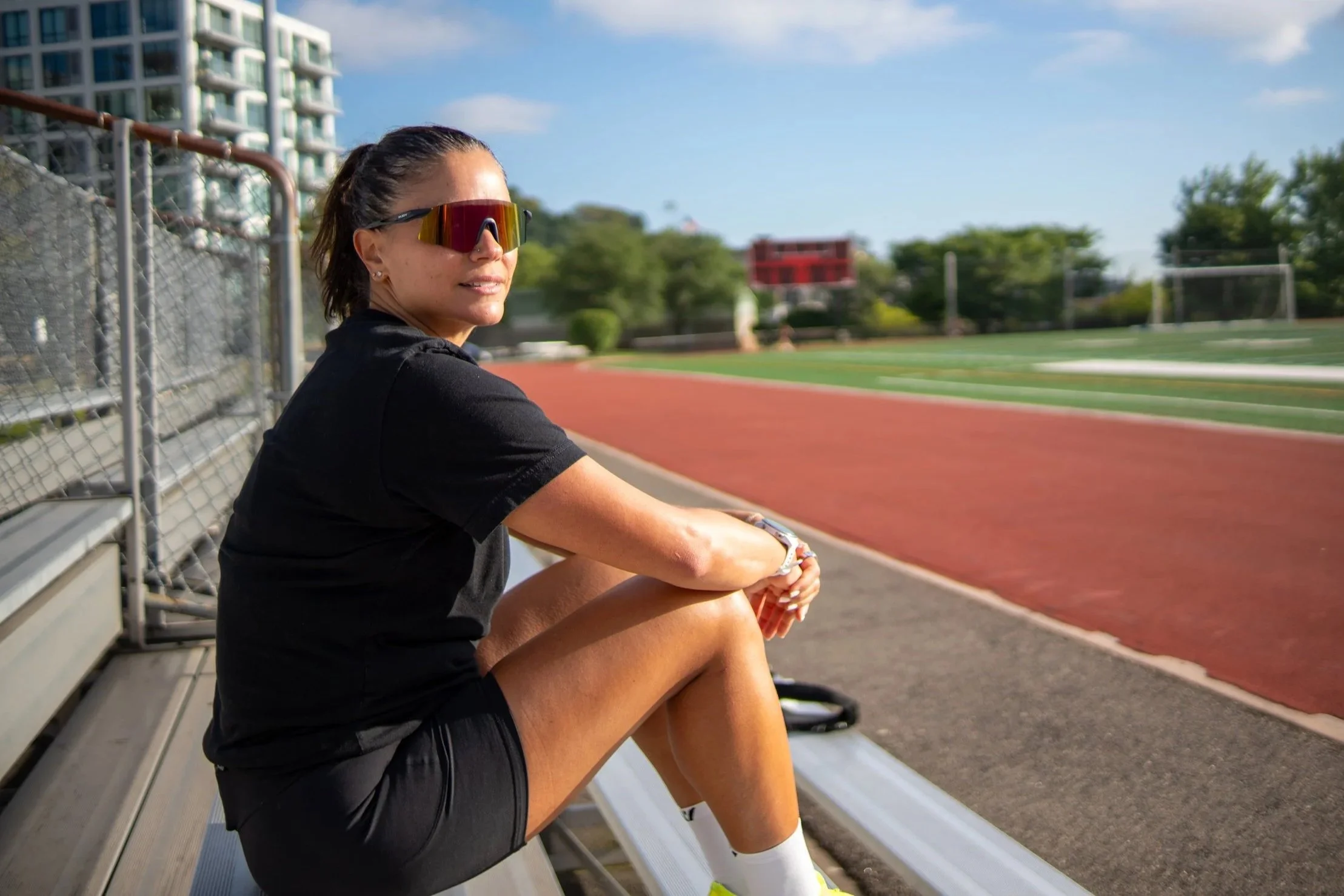
LISA
KURDZIEL
Photos & interview by Matt LeGrice
Lisa Kurdziel is a Hoboken-based endurance coach, marathoner, and Ironman finisher who once hid in the bathroom to skip the mile run in gym class. She eventually swapped volleyball courts for finish lines, and now has more than a decade of racing experience that spans from sprints and triathlons to the full set of World Marathon Majors.
In 2023 she launched The Start Line Project, a coaching practice built around one simple idea: effort matters more than numbers. Her athletes train using perceived exertion, by learning to listen to their bodies, not just their watches. It’s a philosophy she came to after years of chasing paces, injuries, and false starts, and it’s one she believes creates more durable, joyful athletes.
Lisa doesn’t run The Start Line with dreams of scaling it into a giant business. For her, the reward is seeing people surprise themselves, whether that’s finishing their first 5K or shaving minutes off a marathon. Coaching is her way of pouring back into the sports that gave her so much.
Outside of coaching, Lisa is still chasing big goals of her own, including conquering Sydney, Cape Town, to complete the the next level of marathon majors. If her legacy in running has a motto, it’s this: show up for yourself, and show up for others.
Tell me who you are, where you’re from.
My name is Lisa Kurdziel, I’m originally from Atlanta, Georgia. I lived there through high school, then left for college in Boston.
Were you always into running painfully long distances?
Funny enough, I was never an endurance athlete when I was younger. I was actually the opposite. I was the girl who hid in the bathroom to get out of running the mile in PE. I hated it. I knew I was slow and bad at it, and it just wasn’t my thing.
So no endurance sports until later. How did that shift happen?
In my late 20s, I was living in D.C. and working long hours in politics. I didn’t really have a sport anymore and had kind of lost touch with being athletic. My mom has multiple sclerosis, and I saw a Bike MS event in Virginia. I didn’t even own a bike, but something in me said, “I might like that.” I borrowed a bike, signed up, and rode 40 hilly miles in running shoes with no idea what I was doing. It was brutally hard, but I fell in love with it.
From there, I started triathlons. My first was a sprint. I wasn’t fast, but I finished and loved it. Then I signed up for an Olympic distance, then a half Ironman, even though I’d never run longer than a 10k. I had no business being in that race, but I finished and I was hooked.
So then, what, just a casual jump in to the Boston Marathon?
I had attended Boston University in my undergrad. Though I wasn’t there for the 2013 bombing, they still really impacted me and a lot of my friends.
A couple of months after the bombing, one of my best friends and I were in a bar in Southie on my birthday and decided we’d both get bibs for the Boston Marathon the following year. Neither of us had ever run a marathon before.
I went to the MS Society, told them my mom had MS, and promised to raise double their fundraising minimum. They gave me a bib, and in April 2014, I was on a bus to Hopkinton.
That race was unforgettable. The first Boston after the bombing, with first responders lining the entire course. It was incredibly emotional.
Turning onto Boylston and seeing Boston PD saluting the runner. I still get chills. That was my first marathon, and it’s something I’ll never ever forget.
You didn’t stop there. You started chasing the World Marathon Majors. Tell me what that even means.
The majors are Boston, New York, Chicago, London, Berlin, and Tokyo. When you complete all six, you get the Six Star medal. I finished mine in New York in 2023. Now they’re expanding—Sydney was just added as the seventh, and Cape Town and Shanghai are candidates. I’d love to do Sydney and chase the nine.
Photos provided by Lisa, medal photos taken by Jeff Restrepo
I have to know, out of the million races you’ve done, which race are you most proud of?
Honestly, the race I’m most proud of is Ironman Arizona in 2022. And not because it was fast or clean—it was a total shitshow.
It was my third attempt at a full Ironman in a year and a half. The first one, California, got canceled thirty minutes before the start because of a bomb cyclone.
The second, Texas, I had to pull out of the day I arrived after testing positive for COVID. So by the time I got to Arizona, I’d spent a year and a half building, tapering, and never even making it to a start line.
The race had a brief moment of good, but unraveled pretty quickly. I got a flat on the bike. Then another. Then I got stung by a bee.
I’m allergic, so I had to jab myself with an EpiPen on the side of the course. I literally walked into a ditch to do it because I was convinced that if an official saw me, they’d pull me out. I gave myself the shot, climbed back out, and got back on the bike with my leg basically fully numb.
As I was riding my bike without being able to feel my entire leg, I thought, “How the hell am I going to run a marathon like this?” But something flipped when I got to the run. I got off and just raged. I ended up running a 4:23 off the bike.
That whole rollercoaster of two cancellations, COVID, two flats, a bee sting, stabbing myself with an EpiPen in a ditch, then finishing the damn thing anyway—that’s why I’m proud of it. When you’ve had to do three builds just to get to that day, you do what you need to.
“It proved to me that sometimes just crossing the line is the biggest win you can have.”
You coach other runners now while you continue to train for yourself. What got you started on that?
I had a lot of hard-earned knowledge from years of running and triathlons—not formal education, just experience. I’d worked with many coaches of different styles, watched friends, and made plenty of mistakes myself. Eventually I felt like I had a lot to share.
I started by building marathon plans for friends for free, just to see if I liked it and if they found value in it. When one friend told me it was time to start charging, I did. The Start Line Project officially launched in April 2023, and my friend Nikki joined me as a coach about 8 months ago.
You didn’t come from a sports science or PT background. What kind of education or certifications did you do to feel confident as a coach?
That’s true, my professional background wasn’t in sports science. But I did go get my run coach certification through VDOT, which gave me the technical foundation to understand the methodology and data side of coaching.
On top of that, I spent about a year working closely with a mentor in the coaching space. That experience was huge because it wasn’t just shooting from the hip. I got to watch, learn, and ask questions in real time. So while a lot of what I bring is hard-earned through my own racing, I also layered in education and mentorship to make sure I wasn’t just winging it.
Tell me about your training philosophy?
I’m really passionate about training by perceived exertion, which is basically “mindfulness for running,” as one of my athletes once called it. It’s about honestly checking in with your body in the moment. Hard data: your pace, heart rate, and power can be useful gut checks, but they shouldn’t override how you feel.
How did you discover this style of training?
I learned the hard way. I once had a coach who gave me three years of pace-based runs, no easy days. I got injured and developed a bad relationship with running. Eventually I started playing a game with myself—when my GPS dropped out on the Hoboken waterfront, I’d guess my pace and check when it came back. That’s essentially perceived exertion.
If you were my coach, how would you explain this to me?
I coach athletes to train on a 1–10 scale, toggling effort across runs. Sometimes we use pace or heart rate, but often I’ll prescribe miles at, say, 6/10 effort (marathon effort), then at 7/10 (half marathon effort). The goal is to learn how to control effort, not just numbers.
What’s the goal with Start Line Project?
I don’t have grand plans to make it huge. I don’t want it to be my full-time job—I’m afraid it would suck the joy out of it. But I do want it to grow sustainably, with a small squad of athletes and maybe adding another coach down the line.
Overall, it’s about joy, not money. I like helping my clients find what works best for them.
If you were to disappear tomorrow, what legacy would you want people to carry with them?
That you show up for the people you care about. Talk is cheap. What matters is how you show up for yourself and for others. I hope people see me as someone who tried to do that.
“You run for you.You don’t need to run like anybody else.”
Instagram
instagram.com/thestartlineproject



